Posted on 12/19/2025

Most people forget about their spare tire until the worst possible moment: you open the trunk, lift the cover, and find a flat, dry rotted donut staring back at you. The spare feels like a safety net, but it only helps if it is ready to do its job when you really need it. Where Your Spare Tire Hides And What Type You Have Before you can trust your spare, you need to know where it lives and what kind it is. Depending on your vehicle, the spare might be: Full size wheel in the trunk or under the cargo floor Compact “donut” spare with a smaller tread and rim Underslung wheel on a cable hoist under the rear of the vehicle Some newer vehicles do not have a true spare at all. They carry a sealant kit and an air pump instead. It is worth checking yours now, before a roadside emergency, so you know whether you have a real spare, a temporary one, or a repair kit that has its own limits. How Age And Storage Quietly Kill Spare Tires Spare tires ... read more
Posted on 11/28/2025
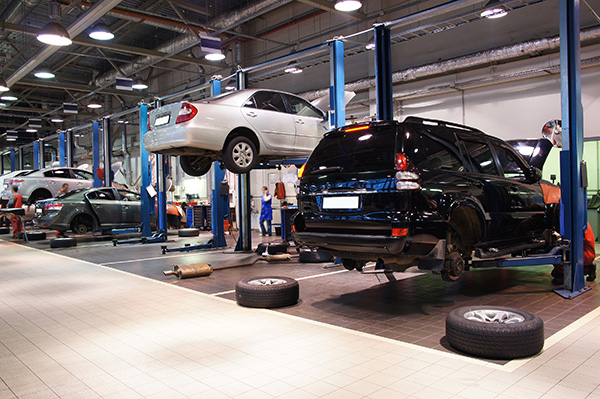
New-car warranties sometimes make owners think they must return to the dealership for every service. The truth is simpler. You can choose a qualified independent shop and keep your warranty intact, as long as the work follows the manufacturer’s requirements and is documented clearly. What Your Warranty Actually Promises A factory warranty covers defects in materials or workmanship for a set time or mileage. It does not control where you buy maintenance or repairs you pay for yourself. If a component fails, the manufacturer must honor the warranty unless it can show the failure was caused by improper service, incorrect parts, or neglect. Routine oil changes, tire rotations, brake service, and inspections can be handled at the shop you trust. The Law That Protects Your Choice Consumer protection law says a manufacturer cannot require you to use a specific brand of parts or a specific facility to keep your warranty. They can require that the se ... read more
Posted on 10/31/2025

When it comes time to sell or trade in your vehicle, small details can make a big difference. Buyers and dealerships look for signs that a car has been taken care of, and even minor improvements can bump up the price you get. Whether you’re thinking about selling soon or just want to keep your car’s value strong over time, there are a few key areas worth focusing on. 1. Keep Up With Regular Maintenance Staying on top of oil changes, filter replacements, and fluid services is one of the easiest ways to protect your investment. It’s not just about keeping the engine running well; a detailed service history also shows that the vehicle has been cared for consistently. That builds confidence with potential buyers. If you're able to present receipts or a stamped maintenance log, that can add real value during a sale. Even simple things like tire rotations and brake inspections should be documented. A car with visible maintenance records often sells f ... read more
Posted on 9/26/2025
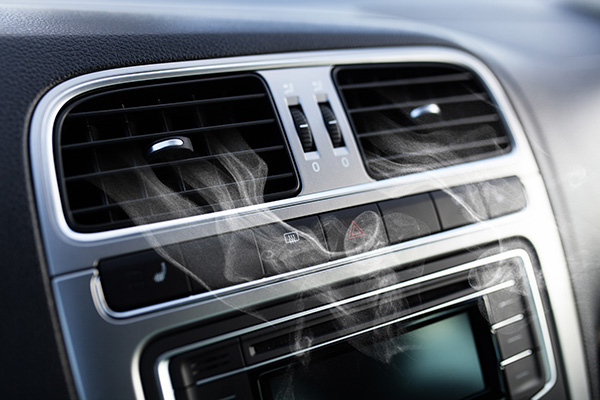
When something smells off inside or around your vehicle, it’s often a sign that something mechanical isn’t right. Some odors are harmless, but others can warn you about issues that need immediate attention. Ignoring these warning signs can lead to safety hazards or expensive repairs later on. Here are six unusual smells that may suggest something is going wrong under the hood or beneath the cabin. 1. Sweet Syrup Smell Could Mean a Coolant Leak If you notice a sugary, sweet scent, especially after driving or when the engine is hot, it could be a coolant leak. Antifreeze has a distinct sweet smell, and leaks may come from the radiator, a hose, or even inside the cabin if the heater core is cracked. A coolant leak not only risks overheating your engine but can also be dangerous to pets or children if the fluid ends up on the ground. Check for wet spots under the front of your car or foggy windows inside that persist even when the defroster is on. ... read more
Posted on 8/21/2025
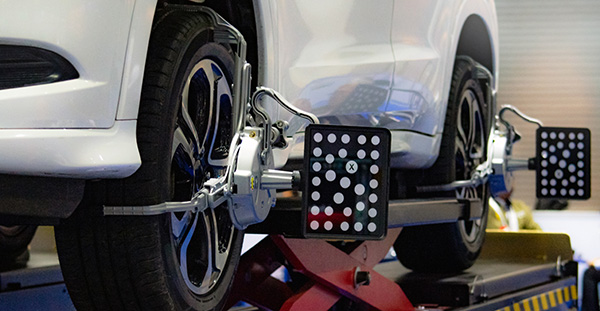
Many drivers think of wheel alignment as a minor adjustment, something to be done only after hitting a curb or noticing their car pulling to one side. In reality, alignment plays a central role in your vehicle’s safety, handling, and tire life. Proper alignment ensures your wheels are pointing in the correct direction relative to each other and the road, thereby reducing stress on your tires and suspension components. Ignoring it can cost you hundreds in premature tire replacement and create unsafe driving conditions. How Misalignment Shortens Tire Life Tires are designed to wear evenly across their tread when properly aligned. When wheels are out of alignment, uneven forces are applied to the tread, leading to premature wear. For example, if your camber angle is off, one side of the tire may wear down faster than the other. Similarly, poor toe alignment can cause tires to scrub against the road rather than roll smoothly. Even a small misalignment can shave tho ... read more
Posted on 7/29/2025
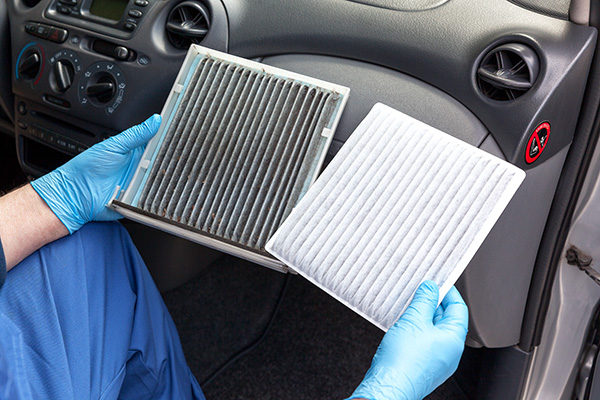
When it comes to vehicle maintenance, the cabin air filter is often overlooked. Yet this small component plays a big role in keeping the air inside your vehicle clean and breathable. Over time, it traps dust, pollen, exhaust fumes, and other airborne pollutants that would otherwise enter the cabin through the HVAC system. Replacing the cabin air filter on schedule helps protect your respiratory health, ensures your vehicle’s climate control system operates efficiently, and contributes to a more pleasant driving experience. Let’s explore when and why this service is necessary. What Is the Cabin Air Filter Unlike the engine air filter, which protects the engine from debris, the cabin air filter is designed to protect passengers from outside contaminants. It’s usually located behind the glove box, under the dashboard, or beneath the hood, depending on the make and model. As outside air is drawn into the vehicle, the cabin filter captures: Dust and d ... read more
Posted on 6/27/2025
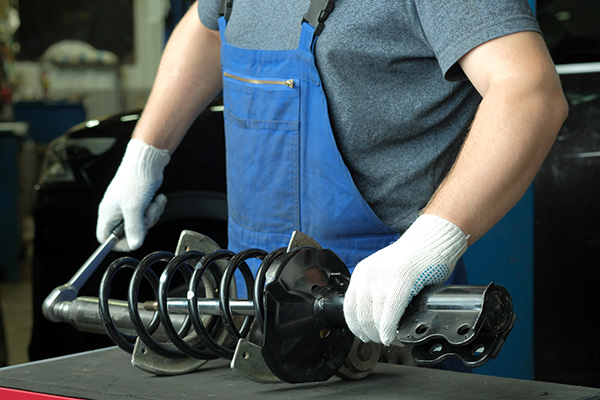
Your vehicle’s suspension system is what keeps your ride smooth, your handling stable, and your tires firmly in contact with the road. But, like all mechanical systems, it wears out over time. The problem is that suspension wear doesn’t always announce itself right away. Instead, it develops gradually, which makes it easy to overlook until performance declines or something breaks. Catching the signs early can make a major difference in both safety and repair costs. If you’ve been noticing changes in how your car drives, it may be time to give the suspension a closer look. Why Suspension Health Matters The suspension system isn’t just about comfort; it also plays a huge role in your vehicle’s ability to respond to road conditions. Shocks, struts, springs, and other components all work together to keep your car stable during cornering, braking, and acceleration. If the suspension starts to fail, so does your ability to control the vehicle ... read more
Posted on 5/30/2025
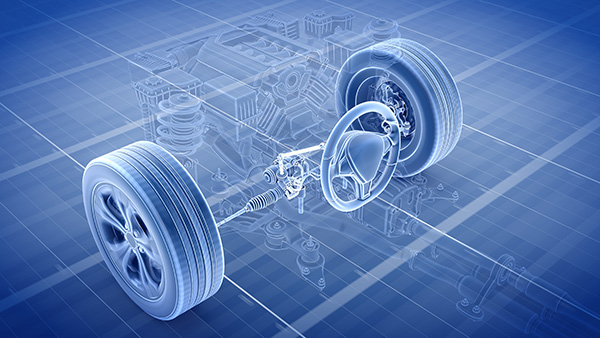
If your car makes an odd groaning or squeaking sound every time you turn the steering wheel all the way left or right, you’re not imagining things. These sounds are your vehicle’s way of saying something isn’t quite right or, at the very least, it’s under stress. While occasional noise may not signal a major issue, persistent or worsening sounds should not be ignored. Let’s find out what these noises usually mean and why they often happen during full-turn maneuvers. Steering System Pressure at Its Maximum When you turn your steering wheel to its furthest limit, you’re putting the power steering system under maximum load. This is especially true if you hold the wheel in that position for more than a couple of seconds. The groaning sound you hear is often the power steering pump straining under that pressure, particularly if the fluid is low or degraded. Power steering fluid lubricates and powers the hydraulic system. When the flui ... read more
Posted on 4/28/2025
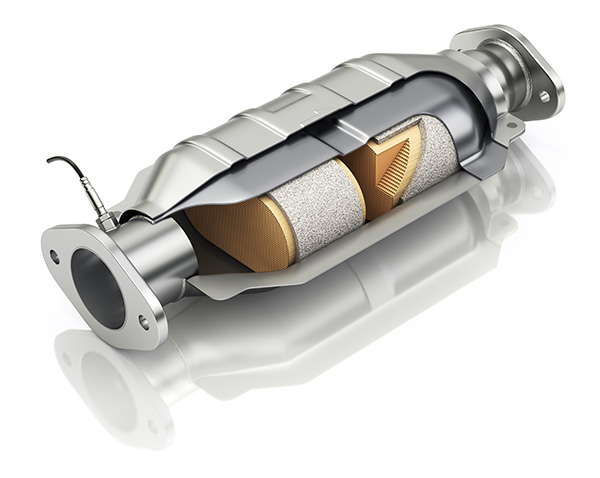
Your catalytic converter is part of your car’s emissions system, but its job goes far beyond just reducing pollutants. When it starts to clog, you might notice your engine struggling, your fuel efficiency dropping, or strange smells from the exhaust. These symptoms are easy to overlook at first, but letting the issue go too long can lead to bigger performance problems or even damage to other parts of your vehicle. So, how do you know if your catalytic converter is starting to fail? Slow Acceleration or Loss of Power One of the earliest signs of a clogged catalytic converter is a noticeable loss of power—especially during acceleration or uphill driving. If the converter is blocked, it creates excessive backpressure in the exhaust system, restricting your engine’s ability to “breathe.” That restriction can lead to sluggish throttle response and poor overall performance. If your car feels like it’s working harder than usual but going ... read more
Posted on 3/28/2025
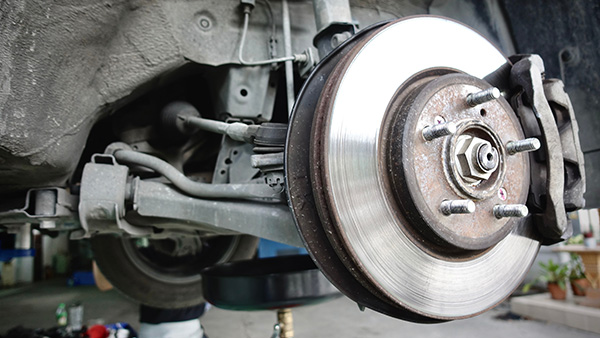
Your brakes are the most important safety feature in your car, hands down. Yet, brake maintenance is something many drivers tend to overlook until there’s a squeal, a grinding noise, or a spongy pedal. The truth is, waiting for a sign that your brakes need attention is a risky move—especially when the goal is to prevent accidents, not just stop them. Maintaining your brakes doesn’t have to be complicated. A few key habits and timely services can go a long way in making sure your brakes are always ready when you need them most. Don’t Rely on Warning Signs Alone Yes, your brakes will usually give you clues when they’re wearing out—squeaking, grinding, longer stopping distances. But those sounds often mean the pads are already worn down and may be damaging the rotors. That’s not preventive maintenance—it’s reactive. By the time you feel something unusual in the brake pedal or steering wheel, the damage may already ... read more